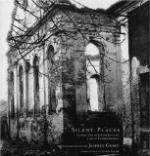But still there remained the question of sustenance. Game would be scarce and uncertain in the cold months.
It was now seven weeks since Dick’s accident. Cautiously, with many pauses, he began to rest weight on the injured foot. Thanks to the treatment of massage and manipulation, the joint was but little stiffened. Each day it gained in strength. Shortly Dick was able to hobble some little distance, always with the aid of a staff, always heedfully. As yet he was far from the enjoyment of full freedom of movement, but by expenditure of time and perseverance he was able to hunt in a slow, patient manner. The runways where the caribou came to drink late in the evening, a cautious float down-stream as far as the first rapids, or even a plain sitting on a log in the hope that game would chance to feed within range—these methods persisted in day after day brought in a fair quantity of meat.
Of the meat they made some jerky for present consumption by the dogs, and, of course, they ate fresh as much as they needed. But most went into pemmican. The fat was all cut away, the lean sliced thin and dried in the sun. The result they pounded fine, and mixed with melted fat and the marrow, which, in turn, was compressed while warm into air-tight little bags. A quantity of meat went into surprisingly little pemmican. The bags were piled on a long-legged scaffolding out of the reach of the dogs and wild animals.
The new husky and Billy had promptly come to teeth, but Billy had held his own, much to Dick Herron’s satisfaction. The larger animal was a bitch, so now all dwelt together in amity. During the still hunt they were kept tied in camp, but the rest of the time they prowled about. Never, however, were they permitted to leave the clearing, for that would frighten the game. At evening they sat in an expectant row, awaiting the orderly distribution of their evening meal. Somehow they added much to the man-feel of the camp. With their coming the atmosphere of men as opposed to the atmosphere of the wilderness had strengthened. On this side was the human habitation, busy at its own affairs, creating about itself a definite something in the forest, unknown before, preparing quietly and efficiently its weapons of offence and defence, all complete in its fires and shelters and industries and domestic animals. On the other, formidable, mysterious, vast, were slowly crystallising, without disturbance, without display, the mighty opposing forces. In the clarified air of the first autumn frosts this antagonism seemed fairly to saturate the stately moving days. It was as yet only potential, but the potentialities were swelling, ever swelling toward the break of an actual conflict.
CHAPTER SIXTEEN
Now the leaves ripened and fell, and the frost crisped them. Suddenly the forest was still. The great, brooding silence, composed of a thousand lesser woods voices, flowed away like a vapour to be succeeded by a fragile, deathly suspension of sound. Dead leaves depended motionless from the trees. The air hung inert. A soft sunlight lay enervated across the world.




